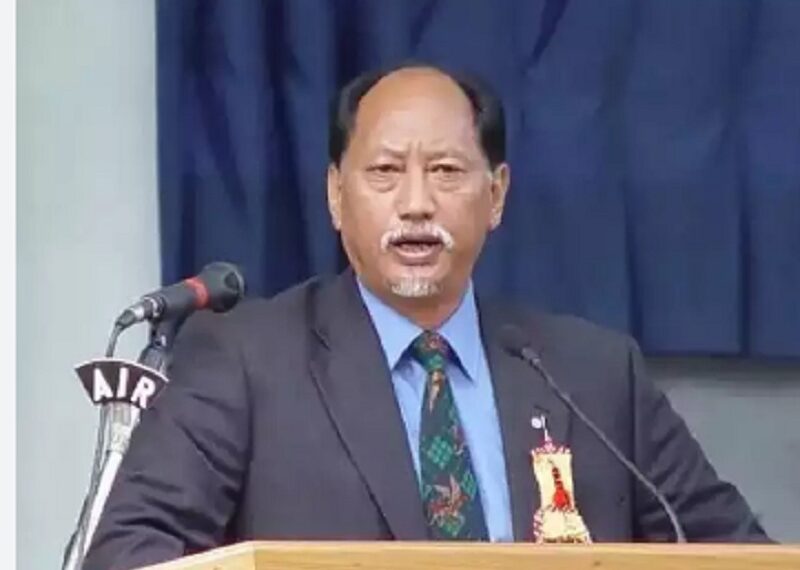Kohima: Nagaland Chief Minister Neiphiu Rio on Tuesday highlighted the historical factors contributing to the backwardness of the eastern region of the state, attributing it to the British administration’s lack of governance in these areas.
Speaking at the 8th Eastern Naga Students’ Federation (ENSF) Cultural Fiesta and General Conference in Tuensang, Rio noted that while the mainland of Nagaland embraced Christianity and education early, the eastern regions lagged behind due to delayed administrative focus, with the first headquarters established in Tuensang in 1957.
Addressing the event themed “Deliverance through Ethnicity Concord,” Rio underscored the state’s commitment to improving education, healthcare, infrastructure, roads, and communication in the eastern districts.
He emphasised the government’s dedication to uplifting the region and ensuring access to quality education for all, aligning with the Right to Education Act.
Rio called for unity among tribal leaders, community organisations, and national workers to ensure progress in ongoing peace talks.
He also reiterated his government’s opposition to restrictions on free movement across the India-Myanmar border in areas inhabited by the Naga people.
The chief minister urged vigilance in issuing Inner Line Permits (ILPs) and Indigenous Certificates to prevent illegal migration and stressed the importance of preserving Nagaland’s unique cultural and customary laws, safeguarded by British-era legislation.
Accompanied by Power Minister K.G. Kenye, Housing Minister P. Bashangmongba Chang, and Eastern Nagaland Peoples’ Organisation (ENPO) President A. Chingmak Chan, Rio acknowledged the longstanding demand for a separate “Frontier Nagaland Territory.”
This proposed state would comprise six eastern districts—Kiphire, Longleng, Mon, Noklak, Shamator, and Tuensang—home to seven tribes identified as backward.
ALSO READ: Nearly 6 lakh people in Meghalaya yet to enroll for Aadhaar
Officials revealed that the state government has provided feedback on the third draft of the Memorandum of Settlement (MoS) for the proposed Frontier Nagaland Territorial Authority to the Ministry of Home Affairs (MHA) as of November last year.
Two rounds of discussions have been held in New Delhi and Chumoukedima, with substantial progress reported.
The state remains optimistic about addressing any remaining concerns of the ENPO.















